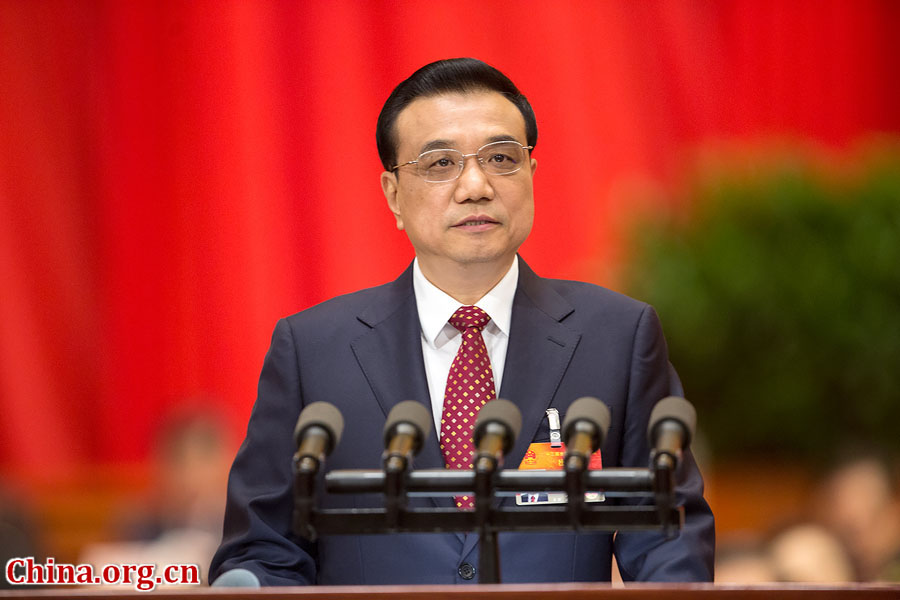Changes in governance reflected in gov't work report
- By Zhong Chunping
 0 Comment(s)
0 Comment(s) Print
Print E-mail China.org.cn, March 10, 2015
E-mail China.org.cn, March 10, 2015
|
|
|
Premier Li Keqiang delivers the annual government work report at the opening meeting of the third plenary session of the 12th National People's Congress, which opened at 9 a.m. on March 5, 2015 at the Great Hall of the People, Beijing. [Photo by Xu Xun/China.org.cn] |
Chinese Premier Li Keqiang delivered the annual Government Work Report on March 5, the second time since he assumed the top Chinese government post. The report comes at a time when China's economy is facing downward pressure and its people are "cautious" about their expectations for the future.
READ: Danish Ambassador: Gov't report shows China's ambition and confidence
Fortunately, Premier Li's report straightforwardly touches upon reality by frankly explaining existing social and economic problems and responding to the issues that the people are concerned about. Apart from these, the report also systematically elaborated on the current administration's ideas about governance. The policies and plans involved in the report are likely to influence decision making for a long time to come.
This year's Government Work Report highlights people's welfare, shows confidence in tackling temporary fluctuations and underscores the purpose of long-term innovation and reform.
Highlighting people's welfare
The report stresses environmental protection and employment but downplays the growth rate, reflecting the current administration's plan for China's development for the next 10 years.
First, the report not only provides a detailed explanation for the income increase in 2014, but also adjusts the goal for this year's growth rate to around 7 percent, a rate capable of accommodating employment, ensuring a well-off society, and leaving room for future maneuverability.
Second, the report pays more attention to environmental protection issues, such as abandoning the old development mode, which causes huge environmental impact. GDP growth is no longer the sole standard for assessing government performance, and the government is increasingly turning to quality of growth and long-term sustainable development as the goals of development.
Third, the report provides specific parameters for many 2015 development goals. The report demands that carbon intensity should be reduced by at least 3.1 percent, chemical oxygen demand and ammonia emissions by 2 percent each, sulfur dioxide emissions by 3 percent and nitrogen oxides emissions by 5 percent. The report further demanded the comprehensive improvement of diesel quality in major cities and key areas in addition to the elimination of heavily polluting automobiles.
Fourth, stipulations for social security and basic medical care highlight the government's objective of being "people-oriented." The report demanded that the pension for retirees rise by 10 percent and that the basic pension standard for both urban and rural residents be raised to 70 yuan (US$11.43) from the current 55 yuan (US$8.99). The report demanded that the government continue to provide basic medical services to people in difficult circumstances in addition to raising the standard of basic medical insurance to 380 yuan (US$62.10) from the current 320 yuan (US$52.30), addressing the government's role in protecting people living in lower social strata.







Go to Forum >>0 Comment(s)